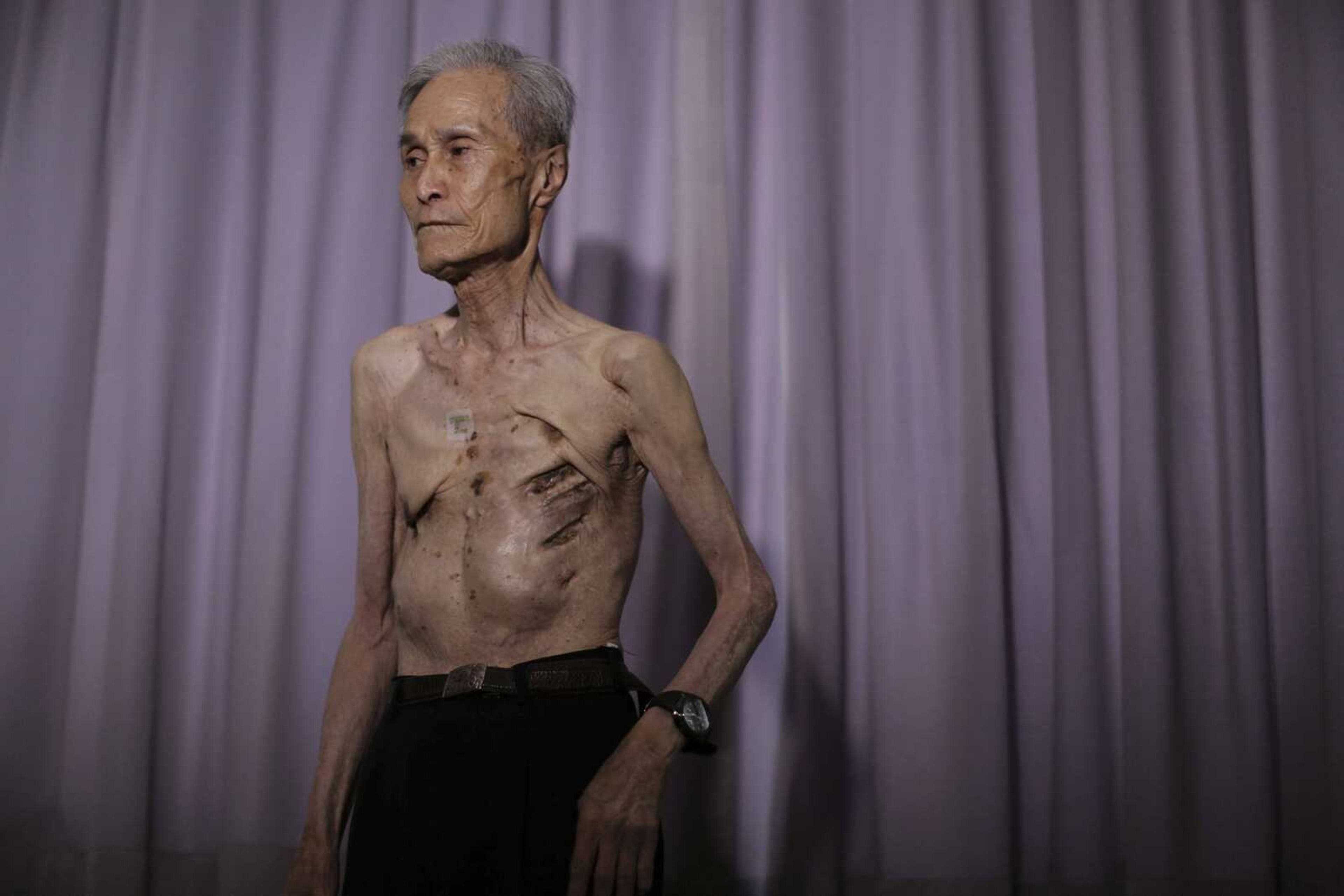Nagasaki atomic bomb left a man scarred for life
NAGASAKI, Japan -- Struggling with a left arm that has never straightened, Sumiteru Taniguchi slowly peeled the undershirt off his frail, 86-year-old body to show two visitors his scars from the atomic bomb attack on Hiroshima. For 70 years, he has lived with them, a web of wounds covering most of his back and the remains of three ribs that half rotted away and permanently press against his lungs, making it hard to breathe. ...
NAGASAKI, Japan -- Struggling with a left arm that has never straightened, Sumiteru Taniguchi slowly peeled the undershirt off his frail, 86-year-old body to show two visitors his scars from the atomic bomb attack on Hiroshima.
For 70 years, he has lived with them, a web of wounds covering most of his back and the remains of three ribs that half rotted away and permanently press against his lungs, making it hard to breathe. His wife applies a moisturizing cream every morning to reduce irritation from the scars. Not a day goes by without pain.
He was 16 and on the job as a letter carrier when the blast threw him from his bicycle. He was about 1.1 miles from the epicenter of the "Fat Man" plutonium bomb that detonated over Nagasaki on Aug. 9, 1945, killing more than 70,000 people. Six days later, Japan surrendered, ending World War II.
Speaking in a weak voice with effort, he said he wandered for three days in a daze, unaware of the seriousness of his injuries. He felt something like a ragged cloth hanging from his back, shoulder and arm: It was his skin.
He spent the next 21 months on his stomach, getting treatment for his burned back, decomposing flesh and exposed bones. In and out of consciousness, he could hear the nurses passing by in the hallway asking each other whether the boy still was breathing. He thought: "Just kill me."
Because he lay immobile for so long, as one of his teenage arm bones grew, it blocked the joint at the elbow so he can't fully extend the arm.
Taniguchi leads a Nagasaki survivors group working against nuclear proliferation, though old age and pneumonia are making it harder for him to play an active role.
"I want this to be the end," he said, slipping his shirt back on.
Connect with the Southeast Missourian Newsroom:
For corrections to this story or other insights for the editor, click here. To submit a letter to the editor, click here. To learn about the Southeast Missourian’s AI Policy, click here.









